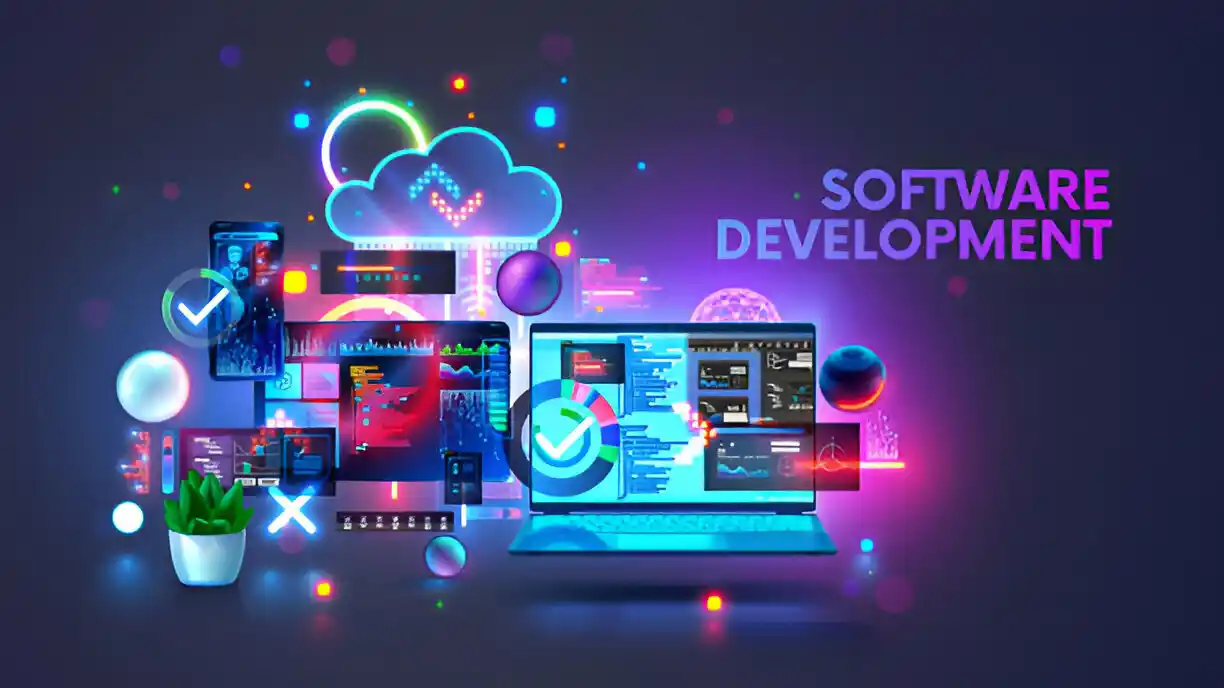Software development processes and methodologies are structured approaches to managing and delivering software projects efficiently and effectively.
- Waterfall Model: This is a linear and sequential approach where each phase (requirements, design, implementation, testing, deployment) is completed before moving on to the next. It’s easy to understand and manage but lacks flexibility for changing requirements.
- Agile Methodology: Agile is an iterative and incremental approach where requirements and solutions evolve through collaboration between self-organizing cross-functional teams. It emphasizes adaptability, customer collaboration, and delivering working software frequently. Scrum, Kanban, and Extreme Programming (XP) are popular frameworks within the Agile methodology.
- Scrum: Scrum is an Agile framework characterized by small, cross-functional teams working in short iterations (sprints) to deliver incremental improvements.
- Kanban: Kanban is a visual management method for software development that focuses on continuous delivery and minimizing work in progress (WIP). It uses a Kanban board to visualize the flow of work items through different stages, allowing teams to optimize their workflow and identify bottlenecks.
- Extreme Programming (XP): XP is an Agile methodology that emphasizes engineering practices such as test-driven development (TDD), pair programming, continuous integration, and collective code ownership.
- Lean Software Development: Lean emphasizes delivering value to the customer while minimizing waste. It draws inspiration from Lean manufacturing principles and focuses on principles such as eliminating waste, empowering teams, amplifying learning, and delivering fast.
- DevOps: DevOps is a cultural and organizational approach that aims to unify software development (Dev) and IT operations (Ops) to enable continuous integration, continuous delivery (CI/CD), and automation of the software delivery pipeline. It emphasizes collaboration, communication, and shared responsibility between development and operations teams.
- Scaled Agile Framework (SAFe): SAFe is a framework for scaling Agile principles and practices to large organizations. It provides guidance on roles, responsibilities, and processes for coordinating Agile teams across different levels of the organization, from teams to portfolios.
- Feature-Driven Development (FDD): FDD is an iterative and incremental software development methodology that focuses on building features incrementally. It emphasizes domain modeling, feature teams, and regular progress reporting.
- Rapid Application Development (RAD): RAD aims to accelerate the development process by focusing on delivering working prototypes quickly.
Each methodology has its strengths and weaknesses, and the choice of methodology depends on factors such as project size, complexity, team composition, organizational culture, and customer requirements. Many modern software development teams adopt a hybrid approach, combining elements from multiple methodologies to suit their specific needs and context.
